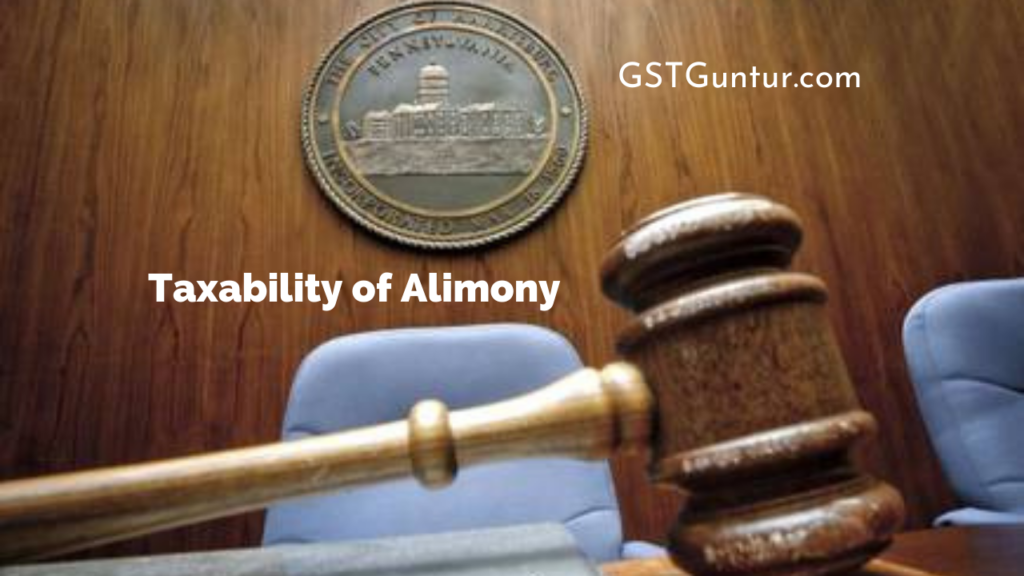- Alimony and Its Taxability
- What is Alimony?
- Taxability in the Recipient’s Hands
- Incomes Received from Assets
- Transferring Assets
- Deductions to Transferor
- Wealth Tax
Alimony and Its Taxability
Women are better equipped to take charge of their lives due to increased access to better education, more awareness of fundamental rights, and the fact that they have become financially, mentally, and physically independent. When they are mistreated or unhappy in their marriage, an increasing number of women can stand up for themselves and even go to the extent of requesting a divorce.
Following the divorce, the woman may be legally entitled to spousal support/maintenance payments, commonly referred to as “alimony.” Here are all the details about alimony, its taxability, and wealth tax.
What is Alimony?
After a formal separation or divorce, any sum of money (recurring or lump payment) received from a spouse to support the spouse or kid.
When a couple divorces or separates, the court may order one of them to pay the other spousal payments, often known as alimony, which is governed by the terms of the Hindu Marriage Act, 1955. These alimony payments must be made following a court order or a mutual agreement reached between the parties. In the majority of cases, one spouse may have foregone a promising career to support the family. That is, in theory, one of the grounds for alimony payment.
Taxability in the Recipient’s Hands
Under the Income Tax Act of 1961, there is no explicit provision that governs the taxability of alimony. Recurring receipts are taxable in general, whereas capital receipts are tax-free.
- Alimony in the form of cash: In the hands of receivers, recurring payments are taxable under the heading Income from Other Sources. However, if a lump sum payment is made, it should be treated as a capital gain and not taxable.
- Alimony in the form of any asset apart from cash: Transferring an asset to a spouse for no consideration is tax-free since it falls within the category of a gift to a relative, which is exempt in the case of beneficiaries. Any asset handed to the former spouse without consideration after the divorce is recognised as a gift from a non-relative and is subject to taxation. The income from such an asset transferred to the previous spouse is not clubbed and is taxable in the recipient’s hands.
]Incomes Received from Assets
Until the marriage ends, any income from assets gifted before a divorce can be combined with the income of the transferring spouse. Any future income from these assets would be taxed in the hands of the recipient spouse after the divorce.
The Act makes no mention of the tax implications of selling assets obtained during the divorce process. When you sell an asset, you’ll have to pay capital gains tax. When assets received without consideration from a spouse before divorce are sold, the previous owner’s holding period is used to determine the gain and taxation. The cost of purchase is determined by the price paid by the previous owner.
Transferring Assets
According to Section 56(2)(vii) of the Act, any asset transmitted without consideration to a spouse till the marriage exists is tax-free in the recipient’s hands. Any asset handed to the former spouse without regard after divorce, on the other hand, would be considered a gift from a non-relative and would have tax ramifications for the recipient spouse.
Suppose the fair market value of an asset other than immovable property (such as securities, jewellery, etc.) is more than Rs 50,000; in that case, the recipient will be taxed on the total value at the time of transfer. The difference between the fair value and the price paid for such an asset is taxable if it is less than Rs 50,000. If the stamp duty value of immovable property is more significant than Rs 50,000, the entire amount will be taxed for the recipient. To arrive at such values, rules have been established.
Deductions to Transferor
Whether alimony is paid in cash or in the form of assets, the transferor is not entitled to a deduction.
Wealth Tax
The impact on wealth tax liabilities should be considered as well. In the case of wealth tax, similar clubbing provisions apply as they do in the case of income tax until the marriage ends. Until the marriage ends, an asset transferred to a spouse without consideration belongs to the transferor spouse. The assets would be included in the recipient’s ex-net spouse’s worth after separation.
